SPOTLIGHT ON FUTSAL: Mark Litton, Expert GK Trainer on How Futsal is Different from Soccer
SoccerToday’s exclusive interview with Mark Litton on Futsal and how it is different than soccer for goalies. Mark Litton is the former goalkeeper coach for the U.S. Futsal Men’s National team and an expert of training goalies.
Mark Litton is one of the best futsal goalkeeper coaches in America. The former goalkeeper coach for the U.S. Futsal Men’s National team, Litton has taken part in the 2008, 2012 and 2016 CONCACAF tournaments as well as the 2008 FIFA Futsal World Cup in Brazil.
Working side-by-side with former U.S. Futsal National Team Head Coach Keith Tozer, Litton has trained many of the top elite goalkeepers in America.
A Wisconsin Soccer Association Hall of Fame inductee in the spring of 2015, Litton has trained thousands of goalkeepers, many to understand how to rise to the challenges in front of the fast-paced futsal net.
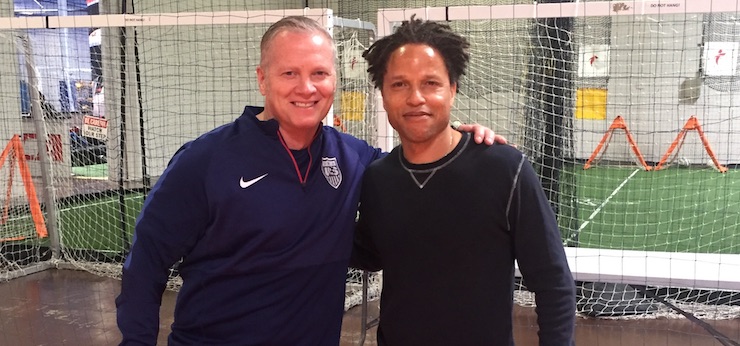
A former professional goalie, Litton was the goalkeeper with the Milwaukee Wave from 1989 through 1994. Named NAIA All-American as a goalkeeper in 1988, Litton holds a USSF national “B” coaching license, a USSF national goalkeeping coaching license, an NSCAA National Goalkeeping Level III coaching diploma and is also certified as a Personal Fitness Trainer and Sports Nutritionist.
Litton is an avid trainer of the next generation of Futsal goalies, often citing the huge differences between being in front of the soccer goal on grass and in front of the net on a Futsal court.
SoccerToday’s Interview with Mark Litton
Diane Scavuzzo: What is the biggest difference between a soccer goalkeeper and a Futsal goalkeeper?
Mark Litton: I think the biggest difference between a soccer goalkeeper and a futsal goalkeeper is reaction time and adapting to the speed of play.
Futsal is a very fast game, there is less time to think about things. It’s a matter of how quick can you develop your thought process and react correctly to every situation.

The soccer keeper typically has the luxury of time on his side. Plays develop further away from goal. Shots can be taken from further away, giving the outdoor keeper more time to make decisions and react.
The biggest hurdle for outdoor goalkeepers to overcome when playing futsal is adjusting to the speed of play.
Second, there is a distinctive technical — body shape — that is the difference between soccer goalkeeping and futsal goalkeeping.
Soccer goalkeeping is about making saves, catching the ball, and holding shots. It’s about your hands, more than it’s about your feet. Soccer goalkeepers are discouraged from making saves with their feet, or from giving up corner kicks.
In futsal, it’s no longer about catching shots, it’s more about blocking shots. And, futsal goalkeepers are encouraged to make saves with their feet. It’s basically a requirement of the position.
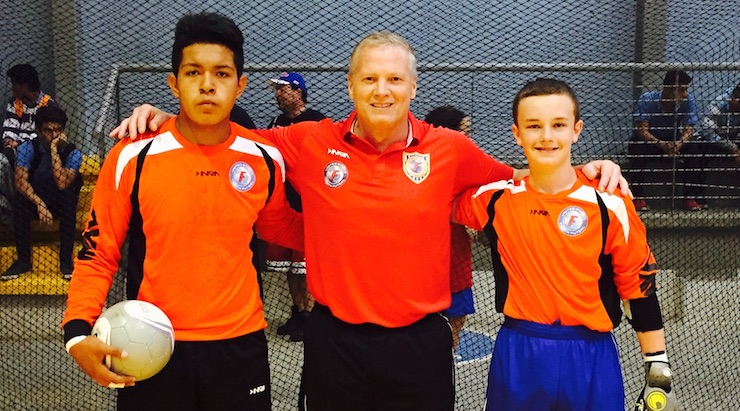
This is also one of the hardest transitions for an outdoor goalkeeper to make when coming indoors to play futsal.
It’s about knowing when to save with the hands and when to save with their feet.
Too many outdoor goalkeepers try to save everything with their hands and eventually give up more goals.
Until they make those adjustments, to the speed of play and makes saves with both hands and feet, they struggle to find success.
Diane Scavuzzo: What advice do you have for today’s youth goalkeepers who dream of becoming professionals?
Mark Litton: Becoming a professional goalkeeper — whether futsal, indoor soccer, or outdoor soccer — is not an easy task.
Professional goalkeeping isn’t a position, it’s a life style. You must live the life style of a professional athlete.
This means everything you do, every day, revolves around being the best professional athlete you can be. You must eat right, sleep right, train right, pay attention to the little details.
Goalkeepers who want to become professionals must always continue to grow and develop. Talented youth goalies must realize that there is always going to be someone that wants your job, so every day you must train at your peak.
Becoming a professional athlete is about mastering your craft. You have to be the best of the best. You have to train harder than everyone else. There are no days off.
The minute you falter, there is someone right there to replace you. Young athletes have to realize that being a professional, being paid to do your job, IS just that, a job. And your employer — the team and coach — have hired you to make their team successful. The minute this isn’t happening, it’s time to find a new employee, or in other words, a new goalie.
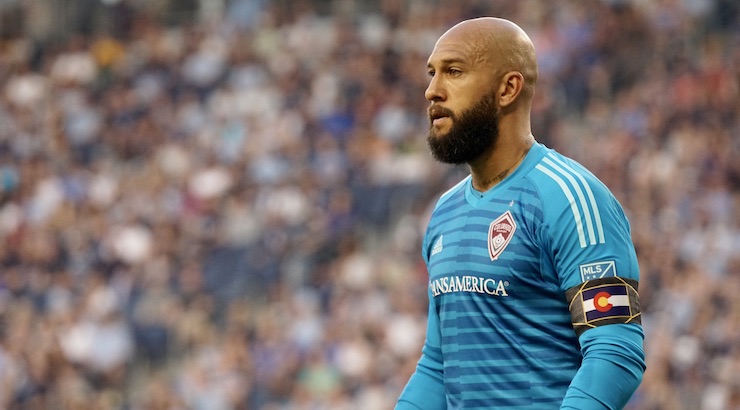
There is a lot of pressure on professional athletes. So you must have enough composure, confidence, and emotional strength, to handle that pressure on a daily basis.
Brad Friedel, before he retired and Colorado Rapids’ goalkeeper Tim Howard are classic examples of what it takes to be a professional goalkeeper.
It’s not just their job, it’s their lifestyle. It’s who they are.
And, because they realize what it takes, they have both excelled to the highest level of success in soccer. They are true role models of professional goalkeepers.
Diane Scavuzzo: As the former U.S. Futsal Men’s National Team goalkeeper coach, what do you believe are the traits needed to be successful as a goalkeeper?
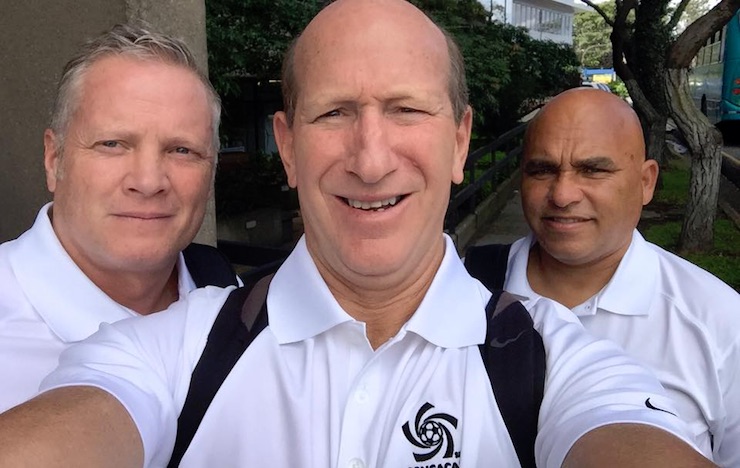
Mark Litton: Goalies must be confident, have good communication skills, be emotionally stable, — as well as be athletic, and be the good decision maker with mental toughness to deal with guarding the goal.
Goalkeepers must be educated — which means knowing your sport and be able to read the game, as well as have great anticipation skills. Goalkeepers must possess a quickness, and they must be able to take criticism, both constructive and destructive.
Our world as a goalkeeper is black and white. There is no grey area. You either make saves, or you give up goals.
There’s really no in between. And if you don’t have these needed characteristic traits in check, the goalkeeper position may be a difficult one.
Diane Scavuzzo: What do you wish all Futsal and Soccer parents to know?
Mark Litton: Right now, the parents of our youth futsal players are the key to their success.
We are at a disadvantage because our U.S. Youth Futsal program doesn’t have the full backing of sponsors or US Soccer.
The program is almost entirely funded through the parents of the youth futsal players. I would want parents to know that we, as coaches, see this and appreciate what they are sacrificing to help their children develop.
These youth futsal players are the future of soccer in this country. As a parent, they should be proud of what they have accomplished and the opportunities they have afforded their children. My utmost respect goes out to all of them.
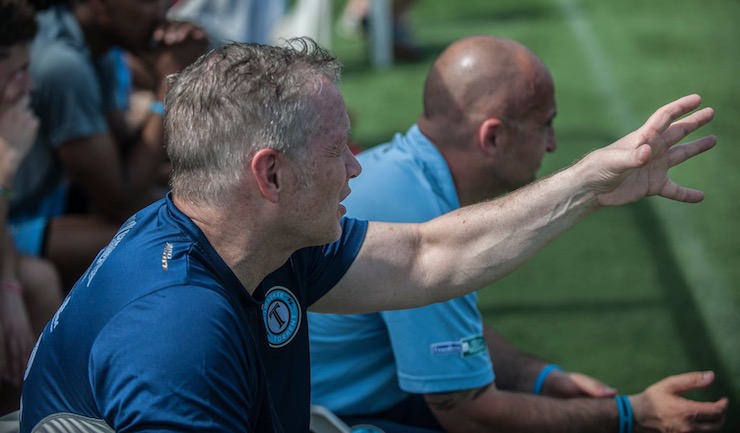
Diane Scavuzzo: When did you first become involved in Futsal?
Mark Litton: As a kid growing up in Wisconsin, we would play soccer in a gym during the winter months.
I loved the small sided game, because as a goalkeeper, it was fast and there was always a lot of action.
I guess you could say that was my earliest exposure to a version of futsal. My first real exposure to futsal came in 2003, because of Coach Keith Tozer’s involvement with the Milwaukee Wave and the U.S. Futsal National Team. I watched the team play a tw0-game series in Milwaukee against Honduras in 2003, as part of the CONCACAF qualifiers leading to the 2004 World Championships.
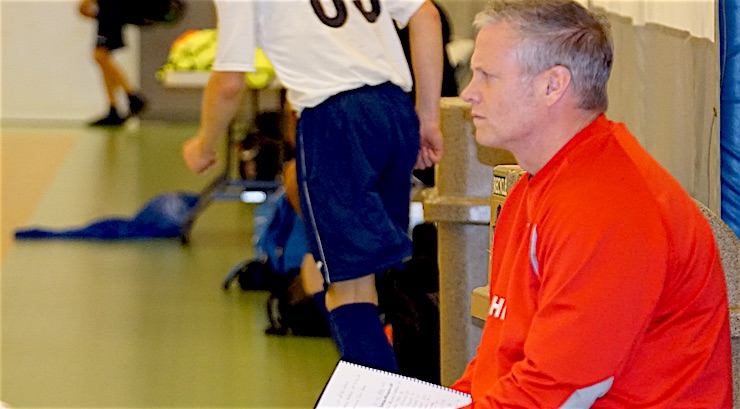
Diane Scavuzzo: What led to your success in Futsal?
Mark Litton: In 2007, Coach Tozer brought me into a training camp with the U. S. Futsal National team as they were preparing for the 2007 PanAm Games in Brazil. The US had a successful PamAm tournament, and Tozer asked me to join his coaching staff as the very first goalkeeper coach ever. It was an honor.
Diane Scavuzzo: Did you play soccer or Futsal as a youth?
Mark Litton: I didn’t start playing soccer until I was 15 years old. I was a multi-sport athlete prior to that, so when I starting playing soccer, it was easy to learn.
The late start put me way behind everyone else my age, but I picked up on the game quickly.
I fell in love with the sport and played year-round, outdoors and indoors. I eventually found the goalkeeper position and it eventually led to a college scholarship and a successful college playing career.
I love the work I do training youth Futsal goalkeepers to be the best they can be.





